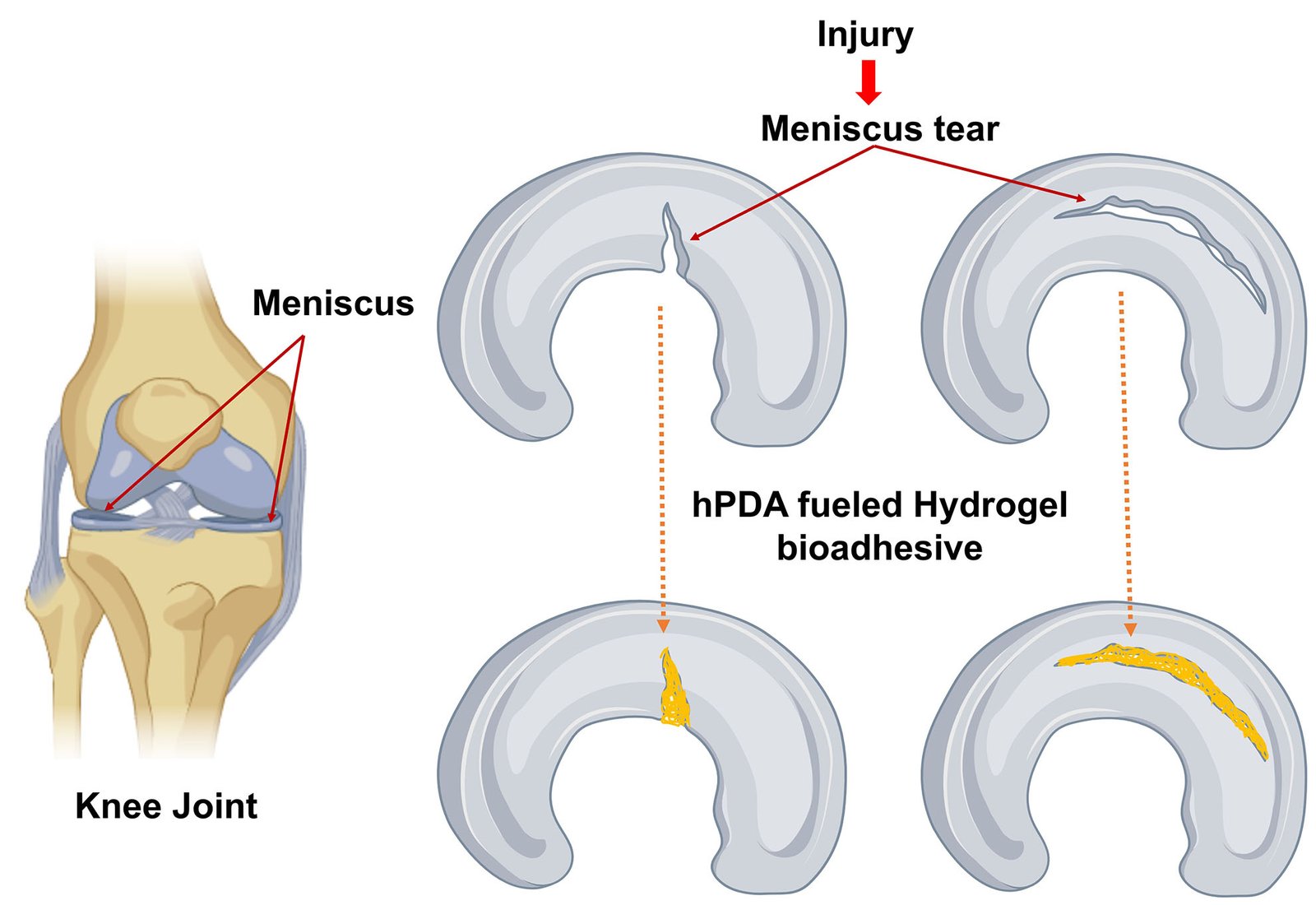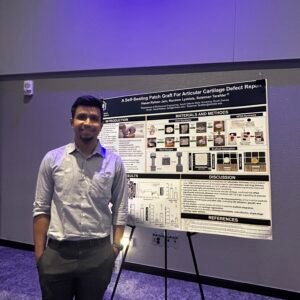
Meniscus injuries are common in the United States, with over one million people needing surgery every year. Inner meniscus injuries present a challenge due to their inability to heal naturally as the inner zone lacks blood supply. Due to the poor intrinsic healing capabilities of the inner avascular meniscus, poor functional healing even after surgical repair often leads to tear propagation, meniscus deterioration, and subsequent osteoarthritis (OA).
However, surgical treatments suffer from substantial re-tear rates and have a high rate of long-term failures. On the other hand, allografts are limited by donor availability, potential immune responses, structural mismatch, and the potential for failure. Although current treatments primarily alleviate the symptoms, there are no treatment options that can consistently induce healing of inner meniscus tears. Traditional treatments have not been able to provide solutions, highlighting the need for innovative interventions that promote functional healing and improve patients’ quality of life.
This project aims to develop a new type of bioadhesive using a substance called hydrophilic polydopamine (hPDA). Polydopamine (PDA) exhibits a structural resemblance to adhesive proteins secreted by marine mussels, showcasing robust wet adhesion to diverse substrates. Unlike traditional PDA, which is insoluble in water, hPDA is water-soluble and also exhibits strong adhesion properties. This project will test this hPDA-fueled bioadhesives to see how well it supports meniscus repair. If successful, this could lead to better treatments for meniscus injuries, reducing pain and improving mobility for many people.

